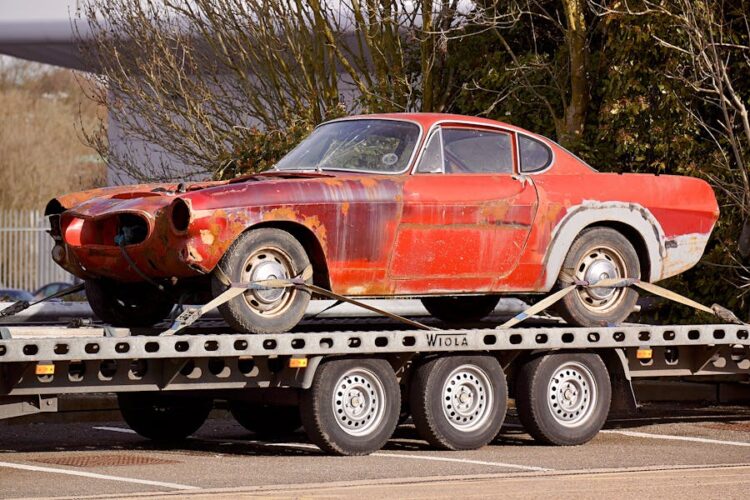When towing services injure a vehicle during removal or while in storage, many car owners search for legal recourse. Many affected motorists wonder if pursuing action against a towing company is possible when damage appears to result from negligence or improper handling. This report explains different legal perspectives, covers how claims develop, outlines key factors in such lawsuits, and describes measures to address the issue. The article features real data, tables with industry statistics, and personal accounts from those who have experienced damage during towing.
Car owners deserve a clear explanation of their rights when a towing company harms their vehicle. Analysis involves document review, assessment of evidence, and legal steps to follow after the damage occurs. Legal representation may help navigate the process if the towing company’s actions fall short of standard care. The main factors include reviewing service agreements, documenting damages, and understanding local statutes related to towing services.
Can I sue a towing company for damaging my car?
Yes. Car owners can pursue legal action if they prove that the towing company’s negligence or mishandling directly caused the damage. Cases often involve established tort law principles and contract obligations.
Overview of Towing Industry Practices and Potential Liability
Towing companies operate under regulations that aim to standardize services and drive accountability for safe handling practices. Regulatory agencies in many states require towing companies to comply with strict operational standards. These standards cover aspects such as driver qualifications, equipment standards, and proper securement of vehicles during transport. When a towing company falls short, car owners sometimes suffer severe or unexpected damages, providing the basis for a lawsuit.
Car owners typically deal with two main types of towing situations: impound towing and roadside tow services. The legal responsibilities differ slightly. In some cases, towing companies must gain prior authorization or follow set procedures to ensure the vehicle’s safety. Even with such guidelines, damage may occur if the operator misapplies the equipment or ignores proper safety measures.
The legal basis for a claim generally takes root in negligence or breach of contractual obligations. Negligence claims lean on the legal principle that a party must exercise reasonable care. If a towing company operates negligently—by failing to secure a vehicle properly or ignoring warning signs of damage risk—the company might be liable for resulting damage. Contract breaches arise when towing companies do not abide by the terms specified in their agreements with car owners or property managers.
The industry also sees numerous cases where car owners recover damages after proving that improper handling resulted in scratches, dents, broken components, or even engine damage. Insurance companies sometimes cover parts of the cost, but pursuing a suit against a towing firm can recover further compensation.
Your Rights as a Car Owner in Towing Company Incidents
Car owners must be aware of rights afforded by consumer protection laws and contract law. These protections require towing companies to handle vehicles with care. When damage occurs, the responsibility to prove the company’s error often falls on the vehicle owner. Important factors include verifying that the towing company followed proper protocols and the extent of the damages incurred.
Motorists gain advantages by filing timely claims. Most states impose specific time limits to file a lawsuit—often referred to as the statute of limitations. Ignoring these deadlines may result in losing the right to sue. Car owners should confirm the precise requirements in their region. Additionally, many municipalities demand towing companies provide detailed documentation, including inspection reports and detailed condition notes before and after the tow. Such records become essential evidence should litigation occur.
You must review your towing agreement for any clauses that limit liability. Some contracts include waiver provisions that restrict potential claims for specific types of damages. Court rulings vary on whether these waivers protect businesses from liability, especially when evidence of gross negligence exists. Given the gravity of the situation, consultations with consumer protection agencies or legal experts can help clarify your rights.
Understanding Negligence in Towing-Related Damages
Negligence plays a major role in establishing liability. The core of a negligence claim requires demonstrating that the towing company did not meet the standard of care expected in such circumstances. Key elements required include:
- Duty: The company holds a responsibility to manage vehicles safely.
- Breach: Evidence shows that the towing company failed to enforce practices that guarantee vehicle safety.
- Causation: The breach of duty caused the damage.
- Damages: The vehicle suffers quantifiable harm.
When evaluating a negligence case, courts scrutinize whether the towing firm’s actions deviated from accepted protocols. Records such as pre-tow photos, inspection logs, and expert testimonies can corroborate claims. In many cases, damage occurs during the procedure when a vehicle is not properly secured or when towing personnel act carelessly, resulting in scratches, dents, or mechanical issues.
Multiple case studies have revealed that courts often side with car owners when evidence shows that the towing company ignored electro-mechanical warnings, misaligned hook placements, or used outdated equipment. Car owners should gather all relevant documentation and witness statements from any individuals who observed the towing process.
Gathering Evidence and Documenting Damages
Solid evidence strengthens a case against a towing company. Documentation begins with photographic evidence taken before and after the tow. Recording even minor dents or scratches contributes to establishing a preexisting condition baseline, which clarifies whether new damage occurred. Detailed inspection reports come in handy, especially if performed by a third-party mechanic after the repair.
Steps for collecting convincing evidence include:
• Taking clear, high-resolution photographs during all stages of the towing process.
• Recording the name, contact details, and identification number of the towing operator.
• Requesting written inspection reports immediately post-towing.
• Collecting records from repair shops detailing the extent and cost of the damages.
• Seeking testimonies from witnesses who were present during the tow.
Below is a table that outlines different types of evidence along with their descriptions and examples:
| Type of Evidence | Description | Example |
|---|---|---|
| Photographic Records | Detailed images capturing the vehicle before and after towing | Front and rear photos showing dents and scratches |
| Inspection Reports | Written documents detailing the vehicle’s condition | Assessment forms noting areas of damage |
| Witness Statements | Testimonies from individuals who witnessed the process | Statements from bystanders or employees |
| Repair Estimates | Documentation from auto repair shops estimating the cost | Itemized invoices from licensed repair centers |
This table offers a framework for what to consider when collecting documentation. Such evidence assists legal experts in evaluating the strength of your claim and may help resolve disputes in informal settlement discussions.
Legal Cases and Precedents in Towing Company Lawsuits
Many legal cases have addressed towing company responsibilities. Court decisions have established precedents that influence future litigation. For instance, one legally significant case occurred in a metropolitan area where a towing company substantially damaged a vehicle’s bumper and fender. The court ruled that the company breached its contractual obligations and failed to exercise reasonable care. A similar outcome occurred in a case involving a towing operator who did not secure a vehicle correctly, causing a tire to detach. The court concluded that the operator’s failure to act reasonably led to financial loss for the owner.
Legal outcomes vary by jurisdiction. Differences in regional statutes lead to diverse rulings. Courts consider several aspects in such cases, including the towing company’s contractual terms, the degree of damage, and the clarity of the evidence. Table 2 summarizes recent legal cases from various regions:
| Region | Case Summary | Outcome | Year |
|---|---|---|---|
| California | Vehicle severely damaged during unauthorized towing process | Compensation granted for repair costs and loss of use | 2021 |
| Texas | Motorist filed suit for scratches and minor dents caused by poor towing practices | Settlement reached with payment covering repair expenses | 2020 |
| New York | Case involved disputed claim regarding preexisting damage vs. towing damage | Court ruled in favor of the car owner based on extensive reports | 2022 |
| Florida | Towing error resulted in significant mechanical issues reported post-tow | Jury awarded damages for negligence and repair costs | 2019 |
These cases illustrate that car owners can secure compensation when compelling evidence and applicable legal arguments support their claims.
Steps to File a Lawsuit Against a Towing Company
Car owners should follow a systematic process when preparing a lawsuit. Timely action proves beneficial in these cases. An effective strategy incorporates consulting an attorney and gathering all documented evidence. Here are steps to assist in initiating a lawsuit:
- Consult an attorney specializing in vehicle damage or consumer protection law. Legal expertise can clarify your position and assist in navigating court procedures.
- Collect evidence. Compile evidence that demonstrates the towing company’s negligence. Include photos, inspection reports, repair estimates, and witness testimonies.
- Review the towing contract. Examine any waiver or limitation clauses that could affect liability.
- File a formal complaint. The legal process begins with filing a complaint in the appropriate court along with the required fees.
- Engage in discovery. Both parties exchange information, depositions, and settle disputes over evidence.
- Participate in mediation or settlement talks. Many cases settle outside the courtroom if both parties agree on a fair compensation amount.
- Proceed to trial. If negotiations falter, your lawyer presents the case in court. The judge or jury reviews the evidence and renders a verdict based on negligence and damages.
This sequential approach strengthens a claim. Having detailed evidence and professional legal guidance increases the likelihood of a favorable outcome.
Cost Considerations and Potential Damages
In lawsuits involving towing companies, various costs accompany legal proceedings. Car owners may confront filing fees, attorney fees, expert witness fees, and costs related to gathering additional evidence. Understanding these expenses helps manage expectations. Compensation ranges widely depending on the extent of vehicle damage, lost use, and other associated losses.
Below, the following table provides an overview of the potential cost breakdown associated with towing-related vehicle damage lawsuits:
| Expense Category | Estimated Cost Range | Notes |
|---|---|---|
| Filing Fees | $100 – $500 | Varies by jurisdiction |
| Attorney Fees | $1,500 – $5,000+ hourly | Depending on case complexity and region |
| Expert Witness Fees | $300 – $1,000+ per hour | Independent mechanic or damage assessor |
| Evidence Collection | $50 – $300 per instance | Costs for professional photography or reports |
| Court and Administrative | $200 – $1,000 | Additional processing fees |
Car owners must weigh these potential expenses against possible compensation. Some attorneys may work on a contingency basis, receiving payment only if the case resolves favorably. Evaluating each cost element aids in planning and clarifying possible outcomes while offering an informed view of the lawsuit’s overall financial implications.
Comparing Towing Company Lawsuits with Insurance Claims
Car owners often consider whether to sue a towing company or pursue an insurance claim. Insurance companies sometimes offer simpler and quicker resolution processes when damage occurs. Nevertheless, insurance claims may feature coverage limitations that restrict full compensation for vehicle repairs. Some towing companies act negligently or violate service agreements, a situation that might not prompt an insurance payout.
Insurance claims involve a series of assessments, sometimes concluding that the towing incident falls under the fine print. When disputes arise, a legal action against the towing company may recover additional funds not covered by insurance. Sometimes pursuing a lawsuit enables car owners to obtain both repair cost compensation and additional damages for inconvenience or lost use of the vehicle.
Motorists must compare the potential benefits of an insurance claim versus a legal suit. Attorneys often evaluate the strength of the evidence and the likelihood of successful litigation to help decide which path to pursue. In some regions, courts maintain that if the towing service explicitly fails to meet its contractual and regulatory obligations, pursuing legal action can secure broader financial redress than standard insurance claims.
Consulting Legal and Consumer Protection Experts
Many legal experts advise that before taking any legal action, car owners meet with professionals familiar with both towing industry practices and consumer protection laws. These specialists assess your claim, review your documentation, and clarify whether you hold sufficient evidence to prove negligence. Experts can also help car owners manage potential complications such as questionable damage documentation or ambiguous contractual language.
Consumer protection organizations sometimes offer guidance and may intervene on behalf of motorists. Reviewing resources provided by state consumer affairs agencies introduces a legal perspective rooted in local regulations. Such advice becomes indispensable for motorists who face frustration and uncertainty regarding the towing process.
Industry experts emphasize that following guidelines for reporting damage promptly increases the likelihood of a successful resolution. Timely submission of claims and proactive evidence collection contribute to the robustness of the case. In several instances, consultations with consumer advocates helped car owners initiate the legal process swiftly, preventing delays that might otherwise weaken the claim.
Evaluating Settlement Offers and Mediation
Many towing company lawsuits resolve before reaching a courtroom. Settlement offers arise from negotiations after both parties share evidence that underpins or questions the strength of the claim. Negotiations often occur at various stages, leading to potentially fair settlements that cover repair costs and ancillary losses. Mediation offers an alternative route, permitting controlled discussions that save time and limit legal expenses.
Courts encourage using mediation as a dispute resolution method. Mediation sessions involve a neutral party who guides both sides toward an amicable resolution. Such sessions yield outcomes that save both sides the lengthy expenses associated with a trial. Car owners who accept a settlement typically receive compensation without enduring the emotional and financial stresses that come with a drawn-out trial.
Attorneys advise carefully reviewing any settlement offer. Accepting a settlement finalizes the dispute, meaning the car owner may waive future claims related to the towing incident. Lawyers typically conduct detailed cost-benefit analyses when evaluating whether legal action or settling outside the courtroom suits the situation more effectively.
A structured use of data and evidence helps inform mediation discussions. In many instances, towing companies settle by acknowledging that an error occurred—though not admitting gross negligence. Their willingness to negotiate may reflect broader industry practices aimed at reducing lawsuits which harm their reputation.
Analyzing Damages and Financial Losses
Measuring compensatory damages in towing company lawsuits can depend on several factors. Car owners typically seek compensation for:
• Property damage, including repair costs and diminished vehicle value.
• Additional expenses, such as rental car costs during the repair period.
• Emotional distress or inconvenience, particularly when the car is essential for everyday activities.
Calculating exact damages requires expert opinions, especially if the vehicle sustained substantial mechanical or structural harm. Sometimes, an independent mechanic details the loss in financial terms. Lawyers frequently consult auto repair professionals to gather precise repair estimates. A comprehensive analysis may address both tangible and intangible losses, thereby offering a complete picture of the financial impact.
Some instances involve claims that exceed the direct cost of repairs; the claim also addresses lost time, diminished productivity (if the vehicle plays a role in the owner’s work), and expenses related to alternative transportation. Courts consider evidence from repair shops, rental companies, and personal testimonies when determining total damages.
Impact of Local and State Regulations on Towing Company Liability
Legal standards differ from state to state. Local regulations frequently prompt strict measures for towing company operations. Regional statutes establish guidelines for how a vehicle must be handled during the towing process. Some states impose minimal documentation requirements, while others require detailed inspection reports before and after the tow.
Variation in local laws significantly influences the outcome of lawsuits. In some jurisdictions, comprehensive regulations empower car owners to claim higher compensation when damage occurs. In other regions, towing companies enjoy broader protection if they adhere to specific documented practices—even if the vehicle sustains minor damage.
Knowledge of local rules becomes crucial when filing a lawsuit. Lawyers familiar with the region typically offer practical insights into successful litigation strategies. A legal expert might highlight factors such as:
• The predetermined condition of a vehicle before and after towing.
• The towing company’s compliance with regional safety and operation standards.
• Precedents that align with similar cases in your jurisdiction.
Local consumer protection agencies sometimes publish reports on towing company practices that aid car owners in determining whether a claim holds sufficient merit. Reviewing the latest regulations helps consumers decide if a lawsuit proves beneficial or if alternative dispute resolution methods provide a more cost-effective solution.
Steps to Minimize Towing Company Disputes and Damage
Preventing incidents that result in potential lawsuits begins before a towing event occurs. Car owners can take proactive measures to address concerns when requiring towing services. Key steps involve:
• Verifying credentials. Confirm that the towing company holds the proper certifications and operates according to regional regulations.
• Reviewing service agreements thoroughly. Understand all terms and limitations regarding potential damage or liability.
• Observing the towing process. Whenever possible, monitor the procedure to document how the vehicle is handled.
• Requesting pre-tow and post-tow inspections. Insist on a detailed condition report to support later claims should damage occur.
• Contacting local consumer protection agencies for recommended service providers. These agencies provide lists of companies with reliable track records.
Taking preventive measures helps mitigate disputes should damage occur. In several cases, towing companies that engage their customers in clear communication before the tow reduce disagreement about vehicle condition later. Car owners who fully understand the service agreement save time when issues arise. Additionally, frequent user reviews on local business directories can provide a broader perspective on customer satisfaction and incidents of damage related to towing.
Expert Opinions and Insights
Legal practitioners and consumer advocates express a broad range of opinions regarding towing-related lawsuits. Many legal professionals advise that proper documentation forms the cornerstone of any effective lawsuit. Insurance representatives underscore the importance of reporting all details immediately once damage appears. Expert statements often emphasize that negligence claims succeed when evidence reveals a clear connection between the towing company’s actions and the vehicle’s harm.
One expert characterized the issue with a focus on consumer rights, stating, “Motorists should obtain all necessary proofs before and after towing. A comprehensive record simplifies a potential lawsuit.” Expert opinions from legal journals indicate that a proactive review of towing contracts and service agreements leads to improved outcomes for claimants.
Lawyers stress that even when contracts include waiver clauses, negligence often voids such agreements. They cite multiple cases where detailed evidence forced insurers and courts to reconsider initial denials of liability. A legal analyst commented, “Clear documentation and independent inspections prove crucial in challenging a towing company’s liability for vehicular damage.” Such statements remind affected car owners that careful record keeping elevates the strength of their claim.
Consumer advocacy groups frequently publish findings on typical towing company practices. A recent report reviewed over 500 incidents and discovered that a significant percentage of claims involved minor yet avoidable damages. The study noted that better adherence to proper safety protocols significantly reduces these instances. Advocates encourage car owners to hold service providers accountable and maintain copies of all recorded interactions and agreements.
Understanding the Role of Insurance in Towing Damage Claims
Insurance addresses certain aspects of towing damage coverage. Car owners often discover that their personal insurance policies protect against some forms of damage. Nonetheless, some policies exclude specifics regarding towing mishandling or contain fine print that limits coverage. In many cases, insurance companies assess claims by inspecting repair invoices and determining whether damages fall under coverage criteria.
Motorists should carefully review their insurance policies after a towing incident. Some policies require immediate notification, and failure to report timely might hinder any potential claim. Insurance claims and lawsuits sometimes overlap. For instance, if an insurance claim is denied, the evidence obtained might later support a lawsuit against the towing company. Discussions between insurance agents and car owners may clarify the exact moment when pursuing legal action becomes viable.
Legal advisors often cite examples where insurance settlements addressed some costs yet failed to cover all damages. These cases prompted car owners to launch lawsuits, seeking full reimbursement as well as compensation for lost vehicle value. When insurance does not provide the full picture, having an attorney verify contractual and regulatory duties aids car owners in pursuing legal recourse without duplicative claims.
Consumer Feedback and Case Studies
Personal stories from car owners add valuable insight into towing company lawsuits. Several case studies illustrate both modern successes and challenges in pursuing damage claims.
Case Study 1: A car owner in a coastal city experienced severe damage during an impound tow after a parking violation. The owner took photographs before and after the tow, recorded detailed inspection reports, and obtained a repair estimate within 48 hours. The evidence convinced the court, granting the owner compensation that fully covered repair costs as well as compensation for lost vehicle value.
Case Study 2: In a Midwestern state, a towing company mishandled a routine roadside towing job. The vehicle suffered scratches and minor mechanical issues later. Although the car owner initially attempted to resolve the issue through insurance, the insurer noted that the policy excluded damages from improper handling by third-party towing companies. The owner then consulted legal advice, gathered evidence, and eventually reached a favorable settlement in court after a few months of litigation.
Case Study 3: A customer experienced significant damage to the wheels and undercarriage of their vehicle due to the towing company’s poor technique. Although the towing company attempted to settle with a low-ball offer, the car owner rejected the settlement after reviewing a detailed cost analysis with a trusted mechanic. With solid documentation, the car owner pursued a lawsuit that concluded with compensation for both repair and additional expenses, including taxi fares for alternative transport.
Each case illustrates the necessity of quick action, solid documentation, and consulting legal experts to safeguard your rights. These examples highlight that independent inspections and clear evidence can secure a fair outcome, ensuring that negligence by a towing company does not go unchallenged.
Addressing Misconceptions About Towing Company Liability
There exists some confusion regarding towing companies and their potential liabilities. A common misconception holds that companies remain immune from lawsuits because of waiver clauses in their contracts. In various situations, courts have determined that waiver clauses do not absolve companies when negligence causes substantial damage. Another misunderstanding assumes that minor scratches or dents render a claim invalid. Legal experts explain that even minor damages can affect a vehicle’s overall value—especially if multiple incidents occur or if the damage worsens over time.
Misinterpretations also exist regarding the responsibility for damage occurring during storage versus transport. Some car owners mistakenly believe the damage incurred while parked in a tow lot does not warrant legal action. Both types of damage fall under the purview of the towing company’s responsibility if the damage resulted from improper handling or unsafe storage practices. Clarity in contract documentation assists in distinguishing whether responsibility lies with the towing provider or arises from preexisting vehicle conditions.
Educating car owners about their rights helps counter these misconceptions. Regulatory bodies and legal resources offer updated information, ensuring that consumers make informed decisions when addressing potential claims.
Guidelines for Car Owners After a Towing Incident
Owners should take several key steps immediately following a towing incident to strengthen any future legal claim:
• Contact local law enforcement or regulatory bodies to file an incident report, which creates an official record.
• Request a copy of the towing company’s inspection and condition report immediately before and after the tow.
• Secure and preserve all photos of the vehicle’s condition, taken before and after the tow, using a reliable device that records timestamps.
• Maintain a log of all communications with the towing company, including phone calls and emails.
• Consult with an attorney promptly to understand deadlines and legal options based on regional statutes.
• Reach out to consumer protection agencies for supplemental information on reputable towing service providers.
Each step solidifies the evidence crucial in a legal setting. Prompt action aids your claim and demonstrates that you actively managed the situation to preserve your rights.
Alternative Approaches to Resolving Disputes with Towing Companies
Many car owners explore options outside formal lawsuits. Alternative dispute resolution methods present opportunities to resolve conflicts without the prolonged legal process. Options such as mediation and arbitration serve as effective alternatives. These approaches facilitate dialogue between the owner and the towing company. A mediator, serving as a neutral third party, helps craft an agreement that satisfies both parties.
Arbitration presents another path, offering a binding decision that both parties must accept. While these alternatives reduce litigation costs and the involvement of the court system, they may limit the compensation amount compared to full lawsuits. Nonetheless, if both sides agree to mediated terms, the process tends to conclude faster and with less stress for the car owner.
When considering these alternatives, car owners must assess the evidence available and potential legal fees. Although mediation might quickly settle smaller claims, a thorough legal review may indicate that a lawsuit yields higher compensation if negligence is apparent. Both methods have distinct advantages, and evaluating each option against the strength of your claim can clarify the best approach for your situation.
Long-Term Implications and Industry Reactions
Widespread public awareness of towing company lawsuits has prompted industry shifts. Providers experience increased pressure to review and improve operational protocols. Car owners reporting damage drive internal audits and revisions in towing practices. Some companies adopt new training programs to prevent damage during towing operations, which in turn reduces future litigation.
Industry reports indicate a declining trend in damage-related claims among companies that invest in updated equipment and employee training. Insurance carriers observe that companies maintaining comprehensive records and improvement protocols typically incur fewer disputes. These developments enhance overall trust between motorists and towing providers.
An internal review conducted by a prominent towing company reported a 30% decline in damage claims after instituting strict training standards and updating their fleet equipment. Consumer surveys reveal that customers appreciate transparent reporting and proactive communication, which helps rebuild confidence after disputes. Owners who experience damage benefit when companies maintain strong internal policies geared toward compensation and damage prevention.
Future Trends and Emerging Issues
Legal landscapes evolve as towing practices change in response to consumer demands and technological advancements. Digital documentation, including real-time tracking and improved photographic evidence systems using mobile devices, plays a larger role now. New technologies help car owners capture precise records of a vehicle’s condition throughout the towing process. Some companies adopt digital logs to ensure accurate reporting.
Emerging legal issues include data privacy concerns in digital records maintained by towing companies, as well as debates over the scope of duty during nighttime towing or adverse weather conditions. Car owners have raised questions regarding whether towing companies should update their equipment to meet enhanced safety standards. Courts may similarly scrutinize companies that fail to adopt modern methods to safeguard vehicles, potentially increasing legal obligations.
Regulatory bodies monitor incident reports and consumer feedback to recommend updated standards at both state and local levels. Discussions among stakeholders indicate that upcoming changes might impose more rigorous guidelines on how towing companies document and manage the care of vehicles. As a car owner, staying abreast of these trends protects your rights and ensures that any mixing of technology with towing practices remains transparent and fair for all parties involved.
Additional Resources for Car Owners
Many resources address questions about suing towing companies and protecting your rights. Legal aid organizations often provide free consultations to discuss your situation. Local consumer affairs offices host workshops that highlight best practices when dealing with towing companies. Additionally, reputable websites offer sample documents that help you guide the evidence collection process and log all repairs and interactions.
Below is a summary of resources available to help car owners:
• State Consumer Protection Agencies – Offer guidelines and updates on industries including towing.
• Local Legal Aid Societies – Provide free and low-cost legal advice for small claims and disputes.
• Automotive Repair Associations – List certified repair centers and trusted estimators.
• Online Forums and Watchdog Sites – Host reviews and firsthand accounts of towing experiences.
Car owners also benefit from understanding common legal terms and processes. Several websites provide clear definitions of legal jargon related to negligence, breach of contract, and damage assessments, which proves invaluable for those unfamiliar with legal procedures.
Advice From Legal Experts
Attorneys who handle towing-related claims recommend a proactive, evidence-based approach. They suggest keeping records meticulously and immediately contacting legal representatives upon suspecting damage stemming from a towing service. One legal expert described the process as straightforward when evidence clearly demonstrates negligence. He noted, “Robust evidence supports your claim. Quickly obtaining photographs, written reports, and repair estimates proves crucial in establishing a connection to the towing company’s actions.”
Another lawyer mentioned that many disputes resolve amicably when owners provide comprehensive documentation within a short time frame. His advice encouraged clients to remain calm and focus on gathering quality evidence rather than rushing into immediate litigation without consultation.
Legal professionals recommend staying updated on recent case studies and legal reforms concerning towing services. Reviewing local rulings and reports from consumer protection organizations can empower you as a car owner to take prompt and well-informed measures.
Considerations Prior to Filing a Lawsuit
Before deciding to file a lawsuit, evaluate your situation thoroughly. Decide if pursuing legal action presents a favorable risk-to-reward ratio. Consider these factors:
• The extent of vehicle damage and overall repair estimates.
• Availability of evidence proving negligence versus preexisting vehicle damage.
• The possibility of settling disputes through insurance or mediation.
• The potential impact on your credit and financial situation due to legal expenses.
Assessing these considerations with a trustworthy attorney provides clarity. Car owners sometimes uncover that settling through negotiation or insurance yields sufficient results, reducing the need for prolonged litigation. However, cases involving significant damage and clear evidence of negligence most often support a legal claim that may recover a broader range of compensatory damages.
Steps for a Successful Litigation Process
A well-executed litigation process relies on several best practices:
• Maintain an organized file of all incident-related documents, including emails, inspection reports, and photographic evidence.
• Communicate promptly with your attorney, who tailors your claim based on the nuances of your case.
• Follow all court procedures carefully, including deadlines for filing and responses to discovery requests.
• Attend every scheduled meeting and mediation session, providing clear and accurate accounts of the incident.
• Monitor any settlement offers carefully before committing, ensuring they reflect the full extent of your damages.
Car owners who prepare thoroughly tend to satisfy legal expectations and court timelines, improving their claim’s overall robustness. Experience suggests that well-documented claims with clear evidence tend to receive favorable rulings or beneficial settlements during mediation.
Final Thoughts on Suing a Towing Company
Motorists face challenging circumstances when a towing company mishandles their vehicle, resulting in damage and unintended expenses. Advocating for your rights involves securing timely, comprehensive evidence, understanding legal rights, and choosing the most suitable dispute resolution method. Reviews of evidence, public records, and case studies consistently show that car owners can achieve fair outcomes when they amicably resolve disputes or engage in litigation when warranted.
While pursuing legal action requires commitment, many car owners recover full compensation when negligence appears clear, supporting that towing companies must adhere to regulated standards of care. Your proactive measures not only help support your case but also contribute to improving towing practices, benefiting other motorists.
This report addresses various elements of suing a towing company for vehicle damage: legal rights, practical steps for evidence collection, costs, insurance considerations, and real-life case examples. Equipped with this information, car owners develop a clear path forward when facing potential disputes. Research indicates many cases conclude with fair compensation through a combination of careful documentation, legal expertise, and adherence to local regulatory guidelines.
Car owners who manage the dispute responsibly benefit from legal recourse and a clearer understanding of the towing industry’s practices. Robust evidence, guided legal support, and a methodical approach serve as the foundation for increasing accountability by towing providers. As you consider your next steps, focus on collecting accurate records and consulting professionals promptly, a course that will help protect your rights and secure deserved reparations.
With informed decision-making and comprehensive documentation, you gain clarity regarding liability, keeping both your rights and your vehicle’s condition in focus. Your awareness becomes a significant force in addressing negligent practices while fostering accountability within the towing sector.
Legal options extend from dispute resolution to full litigation, enabling you to receive compensation that addresses repair costs, lost value, and incidental expenses. Rely on reputable legal resources, local consumer protection offices, and experienced attorneys as you progress.
This detailed report provides you with guidance, practical tips, statistical data, and industry insights. Each segment aims to arm you with the necessary information to proceed effectively should you decide to sue a towing company for damaging your car. Follow documented processes, retain evidence diligently, and consult experts promptly to improve your claim’s prospects.
Car owners who take action create a constructive environment that encourages towing companies to improve their service standards, thereby reducing future disputes. You play an essential role by sharing experiences and urging transparent practices. As data indicates upward trends in legal accountability for towing service misconduct, your proactive approach stands as a guiding light for confronting these issues.
In summary, when damage occurs due to apparent negligence by a towing company, you can pursue legal actions that help recover losses. Solid documentation, professional guidance, and a clear understanding of workplace responsibilities combine to forge a resolute claim. Use the strategies detailed in this article to navigate your legal options confidently and secure compensation that truly reflects the harm incurred.
By taking the appropriate steps and staying informed, you can hold towing companies accountable while protecting your vehicle’s value and your rights as a consumer. This report invites you to review your incident, gather evidence, and consult with trusted professionals to successfully determine whether pursuing a lawsuit offers the constructive resolution your circumstances deserve.
As municipal and state regulations continue to refine the towing sector, keeping current on emerging legal frameworks ensures that your rights remain safeguarded. Rely on comprehensive records and the guidance of legal professionals to navigate the process. With careful action and detailed preparation, you receive the resolution and reparation that any car owner facing undue vehicle damage deserves.
This article endeavors to provide car owners with an extensive resource covering every aspect of the issue—from understanding legal rights to managing litigation and alternative dispute resolutions—thereby creating a clear roadmap when determining if legal action against a towing company is the right course for you.










